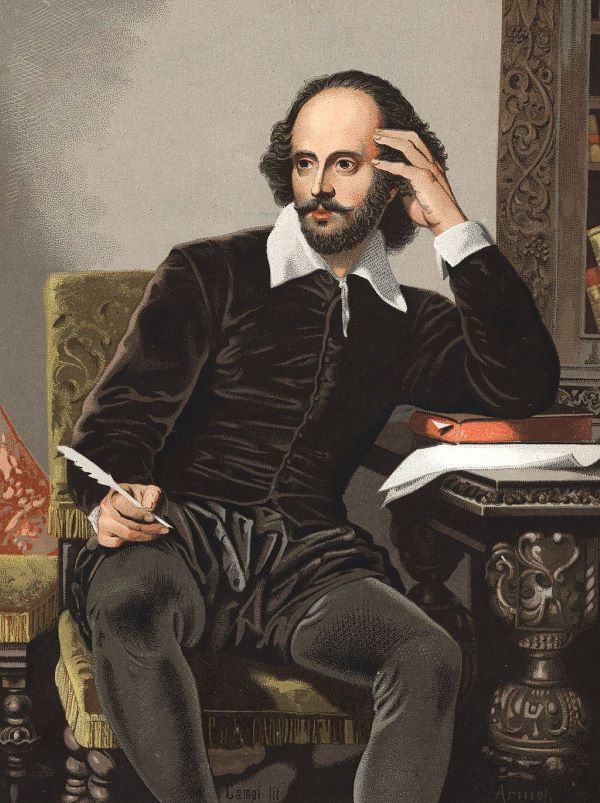Liberty Matters
The Tempest’s Antonio, Conscience, and Adam Smith

A brief discussion of Prospero's traitorous brother, Antonio, seems in order. While we have noted the Machiavellian aspects of numerous Shakespearean characters, it is also worth noting that the opportunistic Antonio has been compared at length to the Machiavellian prince.[49]
In this short post, however, I will focus on Antonio's easy rejection of conscience, a notable dismissal in light of our earlier discussions of how conscience plagues many of Shakespeare's most sinister characters. Antonio's rejection is also remarkable for its likely albeit ironic influence upon Adam Smith's presentation of conscience in The Theory of Moral Sentiments (1759) (III.ii.9).[50]
In Act II, scene i of The Tempest, while King Alonso, his councillor Gonzalo, and Alonso's other men sleep, Antonio encourages Sebastian, Alonso's brother, to murder Alonso, even as he brags of his own usurpation of Prospero. Sebastian asks him, "But, for your conscience?" (II.i.277). Antonio responds:
Ay, sir, where lies that? If 'twere a kibe, 'Twould put me to my slipper; but I feel not This deity in my bosom. Twenty consciences That stand twixt me and Milan, candied be they And melt ere they molest. (278-82)
Antonio's reference to conscience as a nonexistent "deity in my bosom" ironically anticipates Smith calling conscience--which Smith also calls "the impartial spectator of our conductthis demigod within the breast"--"" (III.ii.32, p. 131) and "the great demigod within the breast, the great judge and arbiter of conduct" (VI.iii.25, p. 247). In my research, I have found no other reference to conscience that uses the idea of conscience being a deity or demigod in the individual's breast or bosom. In John Milton's Paradise Lost (1667, 1674), God the Father announces, "I will place within them [humans] as a guide / My Umpire Conscience" (3.194-95), but Smith's presentation of conscience much more closely reflects Antonio's diction. Could Smith, whom Murray Rothbard accused of not properly acknowledging his sources,[51] have hidden his debt to this unsavory Shakespearean character in his presentation of his noble concept of the impartial spectator?
In any event, although Smith writes of conscience's ability "to haunt the guilty," "allow them neither quiet or repose," and "often drive them to to despair and distraction" (118), Antonio easily dismisses the notion of conscience merely by saying that he doesn't "feel" it within him, adding that even if he had "Twenty consciences" he would simply ignore such impotent entities.
I will go out on a limb and speculate that Smith may have maintained silence about his likely borrowing from Antonio because absolutely corrupted characters like Antonio make especially problematic Smith's argument for an impartial spectator that can regulate conduct apart from any appeal to transcendent moral grounding. In The Tempest, of course, Prospero's ability to thwart Antonio's murderous designs and to eventually forgive Antonio requires supernatural intervention and grace, both effected through the mysterious ministrations of Ariel. But what can Smith's impartial spectator do to thoroughly corrupted characters such as the petty tyrant Antonio? We do well to consider both Thomas Hobbes's reminder: "A man's conscience and his judgment is the same thing, and, as the judgment, so also the conscience may be erroneous";[52] as well as Saint Paul's warning against those whose "conscience [is] seared with a hot iron" (1 Timothy 4:2).
Endnotes
[49.] See Arlene Oseman, "The Machiavellian Prince in The Tempest," Shakespeare in Southern Africa 22 (2010): 7-19.
[50.] Adam Smith, The Theory of Moral Sentiments; or, An Essay towards an Analysis of the Principles by which Men naturally judge concerning the Conduct and Character, first of their Neighbours, and afterwards of themselves. To which is added, A Dissertation on the Origins of Languages. New Edition. With a biographical and critical Memoir of the Author, by Dugald Stewart (London: Henry G. Bohn, 1853). </titles/2620>.
[51.] Murray N. Rothbard, Economic Thought before Adam Smith: An Austrian Perspective on the History of Economic Thought, vol. I (1995. Reprint: Auburn, Alabama: Ludwig von Mises Institute, 2006), 442-43. <https://mises.org/library/austrian-perspective-history-economic-thought>.
[52.] Thomas Hobbes, Hobbes’s Leviathan reprinted from the edition of 1651 with an Essay by the Late W.G. Pogson Smith (Oxford: Clarendon Press, 1909). </titles/869>.
Copyright and Fair Use Statement
“Liberty Matters” is the copyright of Liberty Fund, Inc. This material is put on line to further the educational goals of Liberty Fund, Inc. These essays and responses may be quoted and otherwise used under “fair use” provisions for educational and academic purposes. To reprint these essays in course booklets requires the prior permission of Liberty Fund, Inc. Please contact oll@libertyfund.org if you have any questions.